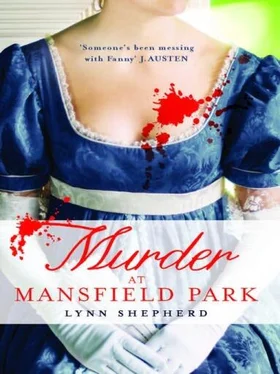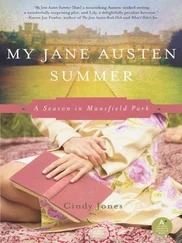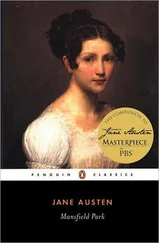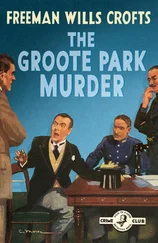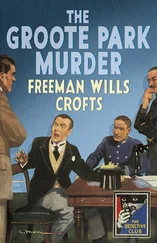"I see," replied Dr Grant, in a heavy tone. "In that case, I must tell you, sir, that I think it exceedingly improper, in the circumstances, for you to act with Miss Price."
"You must excuse me, sir, but I cannot agree," said Mr Rushworth peremptorily. "We shall, of course, shorten some of the speeches, and so forth, but otherwise I can see no objection on the grounds of propriety. The play has been staged in many respectable private theatres — indeed, I saw it put on at Pemberley only last year, though their cast was infinitely inferior to our own, even if I do say so myself."
"That may be," said Dr Grant heavily, "but my opinion remains the same. I think certain scenes in this play wholly unfit for private representation."
"Do not act anything improper, Fanny," said Lady Bertram, who had heard some part of their conversation from her position on the sopha. "Sir Thomas would not like it."
"I hope you will never have cause to reprove my conduct, Lady Bertram," said Fanny, modestly. "I am sure you never have before."
"Well, I have no such fears, sir, and no scruples worth the name," said Mr Rushworth, severely displeased with the clergyman’s interference. "If we are so very nice, we shall never act anything, and I could not wish for a finer début for my little theatre at Sotherton."
"I was just about to say the very same thing," said Mrs Norris, looking angrily at Dr Grant. "I do not know this particular play myself, but as Edmund is to act too, there can be no harm. I think I may answer for my own son, and I will venture to do the same for Sir Thomas. I only wish Mr Rushworth had known his own mind when the scene painter began, for there was the loss of half a day’s work on trees and clouds, when what we want now is cottages and alehouses."
"Pray excuse me, madam, but in this matter it is Miss Price who is to lead," replied Dr Grant, turning to Fanny. "You might simply say that, on examining the part of Agatha, you feel yourself unequal to it. That will be quite enough. The part will be made over to Miss Bertram or to Mary, and your delicacy honoured as it ought."
This picture of her own consequence had some effect, and for a moment Miss Price hesitated; but it was only for a moment. "Why, Dr Grant, that cannot be," she replied sweetly, with a glance across at Mary, "for Miss Crawford already has a part of her own. She is to be Amelia. Do you know the play, Miss Crawford?" she continued, rising and approaching Mary’s chair. "I would be very happy to lend you my copy. I am sure you will find it instructive; especially the third act, where you will find a scene which will interest you most particularly."
Mary had never seen Lovers’ Vows , but she knew enough of Miss Price to know that whatever her meaning, there could be no kindness intended to her in the remark. But Mr Rushworth having need, at that moment, of Miss Price’s advice on the subject of his dress, Mary was able to take up the book and retire to a seat next to Henry, who had likewise been perusing the play with no little curiosity.
"I am to be Count Cassel, I find," he said gloomily. "And, as such, to play the part of your suitor, my dear Mary. Knowing that we are to act together is the only piece of enjoyment I foresee in the entire business. This Count is a complete buffoon — nothing but empty-headed foolishness from beginning to end. Upon my word," he continued in an undertone, "we have made a pretty blunder in our casting of this confounded play! Here am I playing Count Cassel, a man who is “ rich, and of great consequence ”, two qualities to which I cannot, alas, lay any claim, whereas the whole part might have been written for Rushworth! This line here — “ my elegant gun is inlaid with mother-of-pearl. You cannot find better work, or better taste ” — and here — “ The whole castle smells of his perfumery ”. It is the man entire!"
Mary could not help laughing, and he continued, "My only remaining hope is that Count Cassel may succeed where Henry Crawford has failed."
"How so?"
"Why, by reclaiming the attention of Miss Price, who clearly admires the Count Cassels of the world more than the Henry Crawfords. But that being so," he said in a more serious tone, looking over towards the fireplace, "I fear for my fair disdain, for I suspect that Mr Rushworth resembles Count Cassel in more ways than one. Where is that speech in Act IV? Ah, here it is — “ for a frivolous coxcomb, such as myself, to keep my word to a woman, would be deceit: ’tis not expected of me. ”"
Mary did not know how to contradict him, and the two sat for some time in a thoughtful silence. It was some minutes more before Mary turned finally to the scene Miss Price had mentioned, and as she read it the colour flooded into her cheeks. She knew they had cast Edmund as Anhalt, but had known nothing of the part itself beyond the fact that the young man was a clergyman. That had seemed to promise few terrors, but she now comprehended that she would be required to act a scene with him in which the whole subject was love — a marriage of love was to be described by the gentleman, and very little short of a declaration of love to be made by the lady. She read, and read the scene again with many painful, many wondering emotions, and was thankful that Miss Price’s attention was still engrossed in the various refinements of Mr Rushworth’s attire. She could not yet face Fanny’s knowing looks, much less contemplate saying such words to Mr Norris before the rest of the company.
Everything was quickly in a regular train; theatre, actors, actresses, and dresses, were all getting forward, and the scene painter being still at work at Sotherton, a temporary theatre was quickly fitted out in the billiard-room at Mansfield. As the days passed Mary reasoned herself into a greater degree of composure, and could even derive some amusement from the actions of the others, both on and off the stage. Henry had proved to be considerably the best actor of them all, despite the trifling nature of his part, and his consequent frustration was severely aggravated by being constrained to witness the repeated, and soon unnecessary, rehearsals of the opening scene between Mr Rushworth and Miss Price. Everyone else had their own little cares, their own little anxieties — there was so much employment, solicitude, and bustle that the unhappiness of the one member of the party who did not act was soon overlooked. Maria had loved Mr Rushworth — or thought she had — and now endured all the suffering of such a public disappointment, made worse by a strong sense of ill-usage. Her heart was sore, and she was not above hoping for some scandalous end to the affair, some punishment to Fanny for conduct so disgraceful towards herself, as well as towards Edmund. Such bitter feelings might have escaped the notice of the rest of the family, but Mary saw them, though the few attempts she made to shew her kindness or sympathy were repulsed as liberties. Nonetheless Mary could not see her sitting by disregarded with her mother and Julia, or walking alone in the garden, without feeling great pity.
A day was soon set for the first regular rehearsal of as much of the play as could be managed without Edmund. The actors were in the theatre at an early hour; Julia, though still delicate after her recent indisposition, was invested with the office of prompter, and the first scene began. Rushworth made his entrance, and Frederick encountered his mother with much amazement.
" For God’s sake, what is this!" cried Mr Rushworth, beholding Miss Price kneeling in an attitude of elegant despair. " Why do I find my mother thus? Speak!"
" My dear Frederick!" she said, embracing him with ardour. " The joy is too great — I was not prepared — "
Читать дальше
